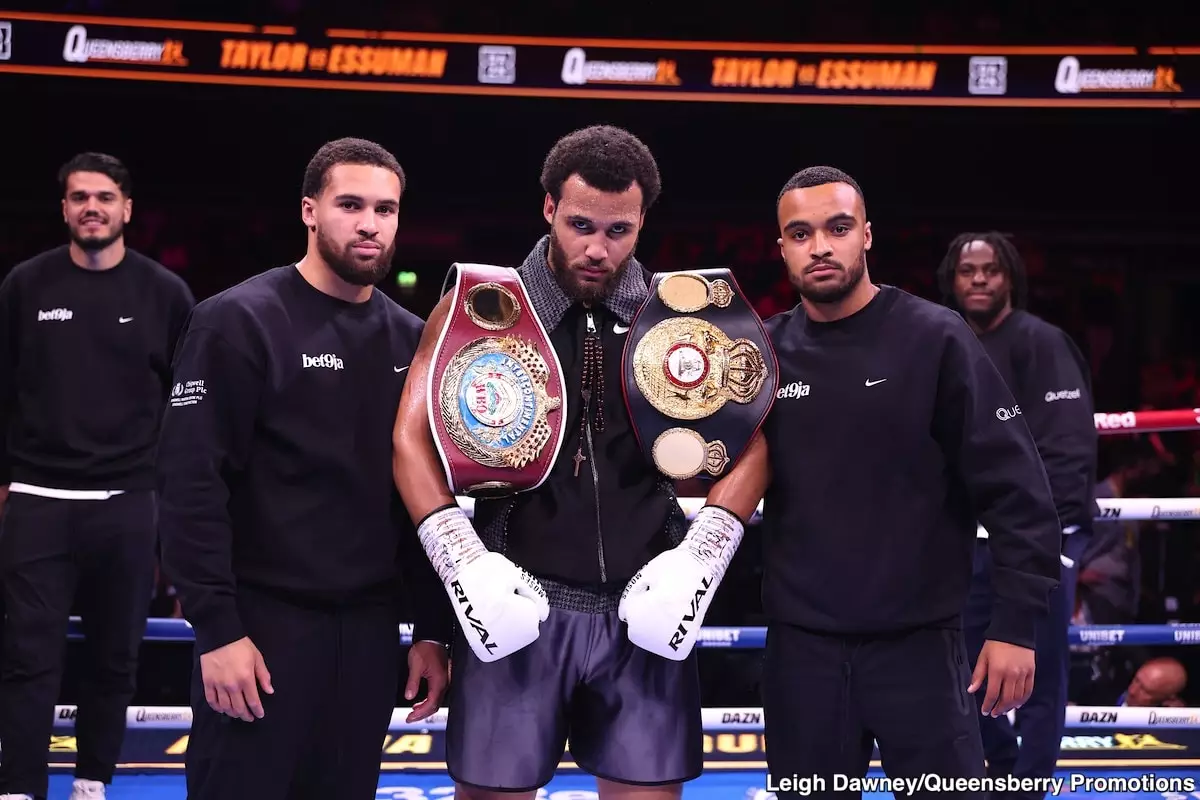The boxing community is buzzing, but perhaps not in the way the World Boxing Organization (WBO) intended. After Moses Itauma (12-0, 10 KOs) delivered a second-round knockout against veteran Mike Balogun (21-2, 16 KOs) at the SSE Hydro in Glasgow, the WBO elevated him to the #1 ranking in the heavyweight division. This decision has ignited discussions—mostly critical—about the legitimacy of the rankings and the pathway of prospects in the sport.
Itauma, only 20 years old, has certainly demonstrated potential with his electric fighting style. However, many boxing aficionados are questioning the merit of his rapid ascent. They argue that such a high ranking should require a more rigorous vetting process. Specifically, critics point out that Itauma has not faced genuine contenders throughout his two-year professional career. This trajectory leads many to ponder whether this elevation is less about performance and more about promotional hype.
A Lackluster Record for a Rising Star
Let’s dissect Itauma’s resume, which includes less-than-stellar opposition for his best wins. Balogun, while experienced, has not been a titan in the ring, and his victory over him raises eyebrows. The other notable opponents—Demsey McKean, who was recently coming off a knockout loss and a year-long hiatus, and Mariusz Wach, a seasoned but 45-year-old journeyman—do not bolster Itauma’s standing as a formidable contender in any high-stakes scenario.
Boxing is a sport that thrives on legacy and challenges, not merely on undefeated records and superficial accolades. The sentiment that a fighter should be rewarded for facing top-level competition is an undeniable standard. Ascending to the top of the WBO rankings requires resilience against veterans who can push a fighter’s limits and expose weaknesses. Instead, Itauma seems to have scaled the mountain without a rigorous climb, an approach many see as undermining the sport’s integrity.
Itauma’s Response: Confidence or Naiveté?
In light of the backlash, Itauma seems unperturbed. He expressed confidence about moving forward in his career, emphasizing that he knew the bout with Balogun was crucial for ascending to the higher tiers of boxing. “I had to try my best to get him out of there, which I did,” he asserted, appearing proud of his performance. Yet this self-assuredness can be seen as somewhat disconnected from reality. His statements may suggest that he sees himself already as a world-class fighter, while critics question whether he’s even adequately prepared for the upcoming challenges that come with a lofty ranking.
Moreover, the narrative surrounding his brother, Karol Itauma, reflects similar concerns. Initially impressive against lesser opponents, Karol faltered when thrust into more competitive matchups. The fear is that Moses may follow a comparable trajectory, where an inflated record masks shortcomings that only reveal themselves under increased pressure.
Call for a Real Challenge
For all the excitement surrounding Itauma’s potential, many argue that it’s time for him to confront more challenging opponents. Names like Agit Kabayel, Martin Bakole, and Filip Hrgovic have surfaced as potential contenders who could test his mettle. The general consensus among critics is that until Itauma steps up to fight such quality opponents, his rankings are simply smoke and mirrors crafted by promotional machinery.
Even Itauma himself acknowledges the need to ramp up his competition. “I got to go to America at some time in my career,” he admitted when asked about where he wishes to fight. However, talk is one thing; action is another. The real question is whether he and his management will put their plans into action or continue riding the wave of fame generated by subpar victories.
The Dilemma of Boxing Rankings
Ultimately, the placement of fighters within the rankings remains a contentious issue across professional boxing. Critics are concerned that a system designed to reward merit is in peril when fighters like Itauma reach top status without facing the gauntlet of established opponents. Unquestionably, there’s an exhilarating undercurrent to the rise of young talent like Itauma—yet, until he faces credible challenges and proves his worth in the ring against seasoned fighters, his #1 ranking may stand as a symbol of potential untested rather than an embodiment of earned success.

